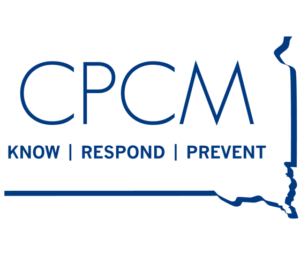The Center for the Prevention of Child Maltreatment (CPCM), a center of the University of South Dakota, was awarded a $1 million grant to implement a WIC Community Innovation and Outreach Project (WIC CIAO) in 2023. WIC CIAO is supported by the U.S. Department of Agriculture (USDA) Food and Nutrition Service and aims to support efforts to develop, implement, and evaluate innovative outreach strategies to increase awareness, participation, and benefit redemption in the Special Supplemental Nutrition Program for Women, Infants, and Children (WIC), and reduce disparities in program delivery.
In South Dakota, WIC provided healthy foods, nutrition education, breastfeeding counseling and referrals for 13,725 participants, including 1,647 pregnant and postpartum individuals, 3,020 infants up to 12 months, and 7,983 children up to age 5 every month, on average this fiscal year (10/2022-2/2023).
In 2020, only 50 percent of all eligible individuals nationwide participated in WIC, equating to a shortfall of almost 6 million individuals. The WIC CIAO Project aims to change that by expanding partnerships with community organizations and using community-level data to develop and implement innovative WIC outreach efforts.
Reaching more families with WIC will have positive impacts on the community. WIC has been shown to provide wide-ranging benefits, including longer, safer pregnancies, with fewer premature births and infant deaths; improved dietary outcomes for infants and children; improved maternal health; and improved performance at school, among others. In addition to health benefits, WIC participants showed significant savings in health care costs when compared to non-participants.
Improving Nutrition Security and Child Health Through WIC-CIAO
3,000+ families were provided information about nutritional and child and maternal health resources available through WIC at more than 30 different outreach events through CPCM’s WIC-CIAO project. The outreach events were made possible through valuable community partnerships and connected WIC-CIAO to diverse and underserved communities. Innovative outreach was one part of a project aimed to identify service gaps, increase enrollment, strengthen retention, create understanding of a variety of benefits, and better inform service providers who work with young families.
The WIC-CIAO project was complimentary to SD Department of Health’s WIC program, which manages the enrollment and benefits of WIC. In South Dakota, WIC provided healthy foods, nutrition education, breastfeeding counseling and referrals for 13,725 participants, including 1,647 pregnant and postpartum individuals, 3,020 infants up to 12 months, and 7,983 children up to age 5 every month, on average the past fiscal year.
The project began with strong parenting input through focus groups and listening session that helped to shape outreach opportunities and a statewide public awareness campaign. Beth Bruggeman, CPCM Program Coordinator stated, “Our findings showed a lack of awareness about qualifications, including that dads can apply, as well as working people, foster parents, and grandparents. We also found a strong understanding of the food benefits, but a lack of knowledge about additional benefits including nutrition counseling, breastfeeding support, and referrals.”
The following public awareness campaign created imagery to highlight these knowledge gaps and placed creative messaging through print, digital, and video messages. Materials were translated when possible, including a partnership with Community Health Workers at Avera that created a short video message available eight languages most used by CHWs. The public awareness campaign rollout culminated in 23,000 visits to SD.GOV/WIC and 1,400 clicks to join or qualify for WIC.
A third component of the WIC-CIAO project aimed to increase knowledge and practices necessary for service providers working with diverse communities and individuals impacted by trauma. More than 70 different training sessions were held over the past year with topics that included cultural competency, poverty simulation, community resilience model, and empathy. 1,000 attendees participated in the trainings, 81% who work directly with children. One training participant noted, “There were many things that I took from it [the training], but the biggest was the understanding of how many barriers exist for these families.”
Along with the trainings, services providers were provided with two new tools through Helpline Center, a centralized database of services for individuals in need of assistance. Helpline Center University was developed to increase caseworker and family’s knowledge of how to effectively use Helpline Center to connect families to needed resources and services. FamilyResources.HelplineCenter.org was launched to provide a search portal where families can search by location for resources available across the state.
A key component of the success of the WIC CIAO project was strong support from University of South Dakota, School of Health Sciences student workers. Over the course of the past year, multiple student workers and interns were integral to project planning and execution. This includes Jason Simon-Ressler, who focused on coordinating many of the community outreach events, and whose project poster was selected to be presented at the American Public Health Association annual conference in October 2024. Simon-Ressler stated, “This project was a nice compliment to the end of my coursework for the MPH program at USD and laid a foundation for my role with SD Department of Health. I truly appreciate the opportunity to develop a better understanding of the barriers that exist to accessing worthwhile services, including WIC.”
The WIC CIAO project was made possible through creative collaborations and strong partnerships, including, but not limited to: South Dakota WIC, Center for Rural Health Improvement – University of South Dakota, City of Sioux Falls Health Department, Lutheran Social Services, School of Health Sciences – University of South Dakota, Helpline Center, Sioux Falls Thrive, Sioux Falls Eat Well Mobile Market, Teddy Bear Den, Sioux Falls Community Learning Centers, Toy Lending Library, Delta Dental of South Dakota, South Dakota Voices for Peace, South Dakota Urban Indian Health – Sioux Falls, SD Early Detection and Hearing Intervention Program, SD Head Start, American Heart Association, Sioux Falls YMCA, Sioux Falls Housing, Sioux Falls Parks and Recreation, Feeding South Dakota, Owen’s Outfitters, Sanford Children’s CHILD Services, USD Nursing, Health Connect of South Dakota, SD Department of Social Services, Community HealthCare Association of the Dakotas, Bishop Dudley Hospitality House, SDSU Extension, and Community Health Workers at Avera.

